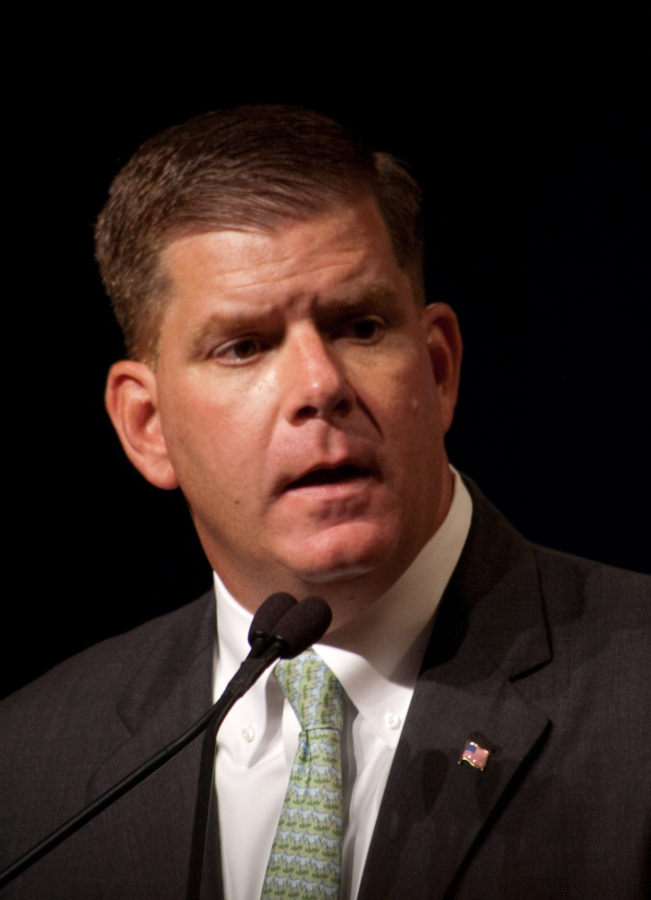Current Mayor Martin J. Walsh and City Councilor Tito Jackson have less than two weeks left in their respective campaigns for City Hall. Although with what some would say was a slow start, in recent days, the pressure on Jackson has increased dramatically after an Oct. 23 Suffolk University/Boston Globe poll that showed Walsh with a 34.8 percent lead over Jackson.
The poll numbers reflect the Mayor’s high favorability rating amongst Boston residents. Walsh was rated 69.4 percent favorable, and has an approval rating of 65.8. Using the same poll, these numbers rival his enormously popular predecessor, the late Thomas Menino.
Jackson’s numbers reflect a difficult final stretch when compared with those of his opponent. The poll asked for the favorability rating of the Boston City Council, which stood at 49.8 percent. Approval for the City Councillor himself was 46.4 percent, an approximately 20-point margin against Walsh.
To date, the campaign has centered around key issues in the city such as affordable housing, the Boston Public School system, and the cost of living. A recent WGBH poll showed that affordable housing topped that list. Polling data shows a large population of residents as dissatisfied with the progress the Mayor’s Administration has made and Jackson has pounced on it in an effort to close the gap between himself and his competitor.
In a recent debate held by WGBH, Jackson said, “The housing he says he’s building for people he says is affordable, is not affordable to people who need it.” This played into his broader appeal to voters in saying that the Mayor has only paid lip service to the poor communities in Boston while engaging actively in efforts to bring developers to the city, thus inflating housing costs.
Citing the progress his administration had made, Walsh said that he wasn’t “seeing developers building moderate-, low-income housing in the past, and [is] seeing it today.” He goes on to say that Boston “has to be a city for all people, not a city for wealthy people.” Plans to add thousands of affordable units citywide was mentioned as well.
Like so many recent elections, the race to be the chief executive of Boston has divided many between Walsh and Jackson. That division has spilled into the University of Massachusetts Boston campus. Both candidates have had ties to UMass Boston in the past.
Jackson came to campus last year during a “No on 2” rally against a ballot question that was perceived to be in favor of charter schools, advocating alongside students and unions in support of public education. He also participated in rallies at the end of the 2016-17 academic year after former Chancellor J. Keith Motley stepped down.
Walsh represented Massachusetts’ 13th Suffolk district, including UMass Boston, for 17 years. He has also advocated and supported many projects to improve infrastructure on campus. He also participates in a yearly seminar course through the Honors College in which students spend a semester working on solutions to a given problem in the city. At the end, students submit the proposals to Walsh at the end of the semester.
Joseph Gilmore is a student at UMass Boston and president of the Students for Sensible Drug Policy organization on campus. He plans on holding a rally in support of Jackson on Nov. 2. When asked about the race, he said, “It’s David vs Goliath at this point,” citing Walsh’s contributions from lobbyists and unions against Jackson’s small individual contributions.

